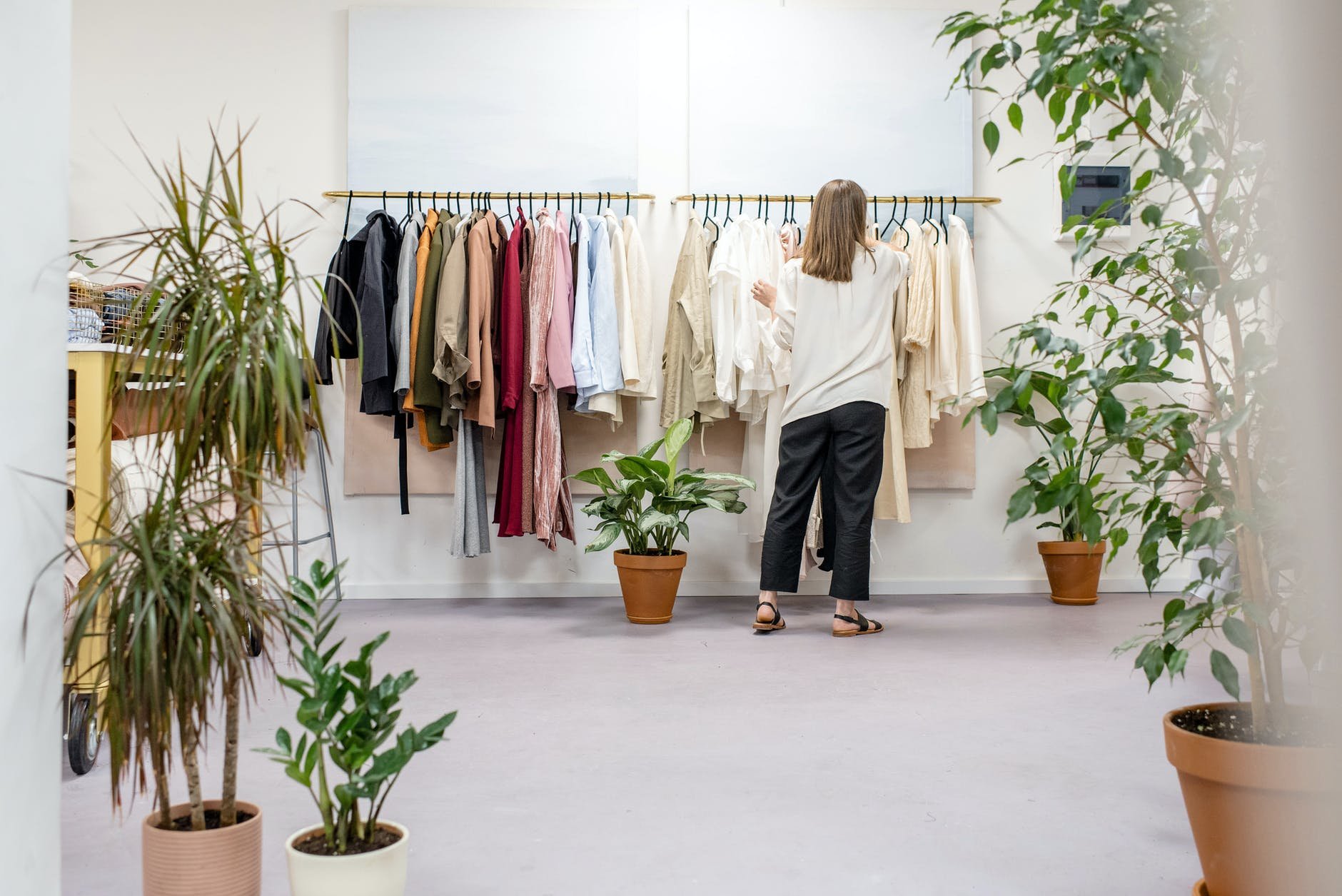These eco-friendly stores make sustainable shopping simple.
By Alina Jaffer
Consumers want fashion-forward and environmentally-friendly pieces (ready made via Pexels)
Fast fashion is destroying our planet and our wallets. Luckily, there are a plethora of local companies committed to creating beautiful clothes without also creating excessive waste.
Here is an introduction to six Canadian fashion brands committed to the slow fashion movement.
Israella Kobla
Toronto’s Israella Kobla wants to redefine minimalism through structure and bold femininity.
The label prides itself on using efficient pattern designs and cutting techniques to minimize their manufacturing’s environmental impact. They also offer functional, aesthetically pleasing packaging which can be easily reusable.
“Design decisions based on sustainable principles are more than using sustainable materials,” says the brand’s website. “One of the best ways we can help the Israella Kobla woman make ethical and sustainable fashion choices is by offering collections that are well thought out and timeless.”
Connally Goods
Vancouver-based Connally Goods takes pride in its dedication to eco-friendliness.
“Sustainability means meeting our own needs as a business without compromising the ability of future generations to meet their own needs,” says the brand’s website.
The company’s gender and size inclusive products are made for durability with natural textiles. All scraps, even loose threads, are saved while creating the comfortably chic goods. These threads are used to repair or refill sleeping bags which are then distributed to people experiencing homelessness in Vancouver’s Downtown Eastside.
Ang Hill
Edmonton’s Ang Hill is transparent about the production of their versatile, feminine basics and accessories. Their website says all original pieces are handcrafted in small batches. Many of these items are made to order and always shipped with minimal packaging.
This slow fashion approach to manufacturing eliminates unnecessary overproduction of clothing which, according to Greenpeace, is a leading cause of climate change and plastic production.
“Fashion should be about creativity and style, practicality and durability,” says the campaigning organization. “But fast fashion companies have made it all about newness.”
Arraei
Arraei creates timeless bohême collections for conscious consumers. The company, created in Vancouver, strives to reduce its environmental impact by using natural fabrics and sustainable packaging.
All purchases are delivered in compostable mailers and garment bags made from plant materials. Labels are printed on undyed natural cotton; and inserts are printed on recycled paper.
The company’s founder, Natalie Florence, expresses her constant commitment to growth on the brand’s website.
“We recognize that this is an evolving journey and that we will never ‘arrive,’ but rather always be looking for new ways to improve our approach to sustainability,” says Florence.
Encircled
Around a billion pounds of fabric items are sent to Canadian landfills each year, according to research from the University of Waterloo.
Encircled – a Toronto-based workleisure clothing brand – is committed to reducing their textile waste contribution. The company’s sewing studios upcycle scrap materials into accessories. They also sell imperfect garments at reduced prices in quarterly sample sales, instead of trashing the flawed pieces.
Customers are encouraged to adopt this less-waste philosophy by buying and selling old purchases on the company’s resale platform, Renewed Threads. Listings are also promoted and posted on the Encircled Facebook group.
Anne Mulaire
Anne Mulaire is an Indigenous-owned fashion brand operating out of Winnipeg.
By offering return to nature programs, this company helps their customers buy better and buy less.
Customers using the “Refresh Program” fill out a form and drop worn-out items in the mail. Anne Mulaire then mends the garments, effectively keeping clothes out of the landfill. These repairs are free within 90 days of purchase.
The “Reloved Program” similarly embraces a regenerative lifestyle by encouraging shoppers to send used Anne Mulaire pieces back to the shop in exchange for store credit. Participants receive between C$5 – $25 per item. Of course, these products must be free from rips, holes, stains and other damage.
Since this company prioritizes using natural materials and upcycling wherever possible, they accept donated garments made from sustainable fabrics. This practice of giving natural textiles new life is Anne Mulaire’s “Revive Program.”
Next time you need a wardrobe update, consider opting for a few eco-friendly pieces. Shopping sustainably is a great way to look and feel good while reducing your fashion footprint.








